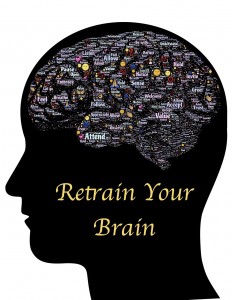The benefits of meditation and mindfulness are best discovered through personal experience. When done correctly, meditation brings clarity, joy, and peace. Through consistent practice, the mind becomes stronger and we are able to handle the constant changes life brings with greater ease and grace.
 The studies have shown these positive effects can be experienced in just two weeks with a small investment of as little as five minutes a day. Western science is proving what practitioners have known since ancient times: Meditation reduces the cognitive decline that occurs with aging, it decreases stress, and it helps us process information at a faster rate. The daily practice of meditation also activates the parts of the brain associated with learning, memory, and emotional regulation. In essence meditation helps us become smarter and happier, and keeps both our brain and our relationships with ourselves and others healthy.
The studies have shown these positive effects can be experienced in just two weeks with a small investment of as little as five minutes a day. Western science is proving what practitioners have known since ancient times: Meditation reduces the cognitive decline that occurs with aging, it decreases stress, and it helps us process information at a faster rate. The daily practice of meditation also activates the parts of the brain associated with learning, memory, and emotional regulation. In essence meditation helps us become smarter and happier, and keeps both our brain and our relationships with ourselves and others healthy.
While I would suggest you explore meditation and find the truth of these claims through your own practice, sometimes it inspires us to read about others. If you’re still on the fence about investing time into meditation, or perhaps you’re simply having a rough day, these 8 articles and studies can help remind you of the power behind sitting in silent mind.
Although the research is still in its infancy, there are thousands of studies being done about how meditation affects the brain and our sense of well-being. Here are just a few samples of what’s been published.
Age effects on gray matter volume and attentional performance in Zen meditation
Pagnoni G., Cekic M.
These findings suggest that the regular practice of meditation may have neuroprotective effects and reduce the cognitive decline associated with normal aging. Read the study:
http://www.ncbi.nlm.nih.gov/pubmed/17655980
Eight weeks to a better brain
By Sue McGreevey
The Harvard Gazette reports on a meditation study that shows meditation appears to make measurable changes in brain regions associated with memory, sense of self, empathy, and stress after only eight weeks. Read the article:
http://news.harvard.edu/gazette/story/2011/01/eight-weeks-to-a-better-brain/
Evidence builds that meditation strengthens the brain, UCLA researchers say
By Mark Wheeler
Research suggests that meditation strengthens the connections between brain cells, allows the brain to process information faster and increases the ability to adapt to environmental changes. Read the article:
http://newsroom.ucla.edu/releases/evidence-builds-that-meditation-230237
Mindfulness Training Improves Working Memory Capacity and GRE Performance While Reducing Mind Wandering
Michael D. Mrazek, Michael S. Franklin, Dawa Tarchin Phillips, Benjamin Baird, Jonathan W. Schooler
After a two week study, results suggest that cultivating mindfulness is an effective and efficient technique for improving cognitive function, with wide-reaching consequences. Read the study:
http://pss.sagepub.com/content/24/5/776
The underlying anatomical correlates of long-term meditation: Larger hippocampal and frontal volumes of gray matter
Eileen Luders, Arthur W. Toga, Natasha Lepore, and Christian Gaser
Although the systematic study of meditation is still in its infancy, research has provided evidence for meditation-induced improvements in psychological and physiological well-being. Moreover, meditation practice has been shown not only to benefit higher-order cognitive functions but also to alter brain activity. Read the study:
http://www.ncbi.nlm.nih.gov/pmc/articles/PMC3184843/
Mindfulness practice leads to increases in regional brain gray matter density
Britta K. Hölzel, James Carmody, Mark Vangel, Christina Congleton, Sita M. Yerramsetti, Tim Gard, Sara W. Lazara
The results suggest that participation in meditation is associated with changes in gray matter concentration in brain regions involved in learning and memory processes, emotion regulation, self-referential processing, and perspective taking. Read the study:
http://www.ncbi.nlm.nih.gov/pmc/articles/PMC3004979/
Change in Brainstem Gray Matter Concentration Following a Mindfulness-Based Intervention is Correlated with Improvement in Psychological Well-Being
Omar Singleton, Britta K. Hölzel, Mark Vangel, Narayan Brach, James Carmody, and Sara W. Lazar
A follow up of the above study, showed individuals can improve their levels of psychological well-being (PWB) through utilization of psychological interventions, including the practice of mindfulness meditation, which is defined as the non-judgmental awareness of experiences in the present moment. Read the study:
http://www.ncbi.nlm.nih.gov/pmc/articles/PMC3927233/
Forever Young(er): potential age-defying effects of long-term meditation on gray matter atrophy
Eileen Luders, Nicolas Cherbuin and Florian Kurth
The findings of this study seem to suggest less age-related gray matter atrophy in long-term meditation practitioners. Read the study:
http://journal.frontiersin.org/article/10.3389/fpsyg.2014.01551/full
****
To be notified of new blog posts, please join my Happy News Mailing List.
My work is entirely funded by my readers – by you. If you like what you have read, if you find insight or inspiration in these words, please visit my Support page to learn how you can help keep the work going with a one-time gift, or as an ongoing Patron.
THANK YOU!
Jenna
